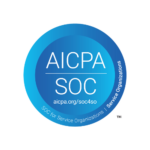Around the U.S., more than 1,000 colleges and universities are facing one of most the challenging situations since their founding — how to safely open in the midst of COVID-19. Every institution is developing their own guidelines to minimize the spread of coronavirus. These programs differ between schools — as does their enforcement. And according to media reports, some universities are treating students harshly. Considering these dramatic changes and complete reimagination of how we define the college “experience” we have to ask the question, are universities looking beyond freshman revenue at the value of a lifetime relationship with a happy alum?
The New York Times explained how such harsh enforcement can harm the student experience in a recent article focusing on Cornell University. According to the Times, Cornell students are encouraged to report peers to the authorities for infractions like partying. How are the students responding to this disciplinary approach? Student Melissa Montejo explained it this way: “‘Nobody likes snitching — it’s not comfortable. I really am not one to go around and tell people what to do, but for me, this was troubling.’”
Cornell is not the only campus to struggle with this issue. According to the Boston Globe, Northeastern University dismissed 11 freshmen for this behavior, and won’t refund their $36,500 tuition payment. In the Midwest, the University of Illinois has also disciplined more than 100 students for breaking its new health rules. The list goes on and on.
Some medical experts are speaking out against what they view as harsh treatment. Harvard epidemiologist Julia Marcus believes colleges must find more measured approaches that don’t alienate students but still address safety concerns. “If universities really want students to stop having indoor parties, they need to provide opportunities for students to stay socially connected that are lower-risk,” she said.
Gobel Group believes there is another key reason universities should avoid taking too harsh of a stance. Our years of research in the philanthropic space has shown those students who enjoy a positive college experience will become tomorrow’s advocates, cheerleaders and donors. Likewise, colleges that sour students on their university experience risk alienating them before they ever receive that first alumni communication.
In short, Gobel Group’s insight into why people donate to nonprofits —including universities — demonstrates gratitude, based on emotional resonance with an institution, is what turns an alumni into a donor. We therefore believe it’s vital that colleges identify and enhance the bonds that cement group cohesion. Seen in this light, reconsider the words of Cornell student Montejo: “No one likes snitching.” Do they strike you as a campus promoting emotional bonds that students feel toward their school?
This question strikes at the heart of disruptive thinking around philanthropy. For decades, universities concentrated efforts to find donors on the rubric of wealth data. But Gobel Group has conclusively proven it is actually gratitude driving charitable giving, not wealth. Nonprofits of all types, including colleges, are partnering with us to find their tribe — the people that resonate with the institution to such a degree they are willing to put their money towards its continued success.
Of course, the difficulty universities face is no two alumni are the same. Some have very positive experiences on campus, lending themselves to make a gift. Others are so disconnected from the school they are not likely to ever donate. We are helping universities save time and money by determining what factors identify which group a particular alumni fall into.
Even if a school hires a costly team of data scientists to discern this difference, they are starting from square one. At Gobel, we have developed a base of knowledge and insights on donor behavior based on working with dozens of nonprofits considering numerous college experience factors. Applying AI and machine learning allows us to make sense of vast amounts of data.
This data is crucial — and too often overlooked, especially since colleges possess a veritable goldmine of information about its alumni. Unfortunately, it is often disjointed, kept in many different places, and hard to evaluate holistically. Gobel Group helps institutions aggregate the data before evaluating which variables will drive gratitude resulting in giving.
These variables may number into the hundreds or even thousands depending on the university. You may also be surprised by some of the factors determinizing the bond an individual feels to their school. These can include: did they get parking tickets on campus? How many items of college clothing did they buy? Did they attend football games? What type of grades did they receive? Did they meet a romantic partner on campus? Did they live on campus or did they have a campus job? These are but a few of the hundreds of data points that can be used to help determine an unhappy alum versus one alum that will support the university throughout their lifetime.
Many other factors also contribute to how alumni feel about their Alma Mater. Yet through the power of AI/machine learning, Gobel Group can harness this data, identifying alumni that feel the most gratitude towards their school. These alumni compose the school’s tribe — their most likely donors.
The days of relying on wealth data to try and find happy donors are over. Universities, hospitals and nonprofits around the country can turn the corner on fundraising just by tapping into the experiential data they already possess. If you would like to learn more about how our disruptive approach can bring your institution more funding, contact us to schedule a 15-minute introductory call with a member of our team.
